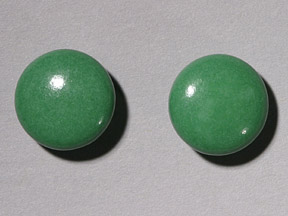
Ferrous Gluconate Coupons & Savings Card – Discount Prices from $6.67
Generic for: Fergon, Ferate, Kp ferrous gluconate
My prescription
Edit
324 (38 Fe)MG, Ferrous Gluconate (90 Tablets)
Select pharmacy

Walgreens
$6.67
COUPON PRICE
Albertsons
$8.20
COUPON PRICE
Walmart
$14.32
COUPON PRICEFerrous Gluconate savings card
Show this card to your pharmacist
Walgreens
$6.67
BIN
ID
PCN
GRP
019876
LH4A079830
CHIPPO
LHX
Powered by
More prescriptions for iron deficiency
More prescriptions for iron deficiency
Price history for Fergon (brand) & Ferrous Gluconate (generic)
90 Tablets, 324 (38 Fe)MG
Average retail price for Fergon
Average retail price for Ferrous Gluconate
Average SaveHealth price for Ferrous Gluconate
Our price history data is based on aggregated prescription data collected from participating pharmacies in America. Our prescription data updates daily to reflect the latest price changes. If you notice a missing data point, it means there wasn't sufficient data available to generate a monetary value for that date.
We analyzed Ferrous Gluconate prices for (324 (38 Fe)MG, 90 Tablets) over the last 12 months. The average retail price was $24.44, while the average price using the SaveHealth discount card was $7.25. That's a savings of approximately 70.34% when using our Ferrous Gluconate coupon.
Compared to the generic version, Fergon had an average price of $15.44 over the same time period. With the SaveHealth savings card, Ferrous Gluconate is 53.04% cheaper on average than Fergon.
*Retail prices are based on pharmacy claims data, and may not be accurate when we don't have enough claims.
Ferrous Gluconate Dihydrate (Ferrous Gluconate) dosage forms
Dosage Quantity Price from Per unit 239 (27 Fe)MG 100 Tablets $8.05 $0.08 240 (27 Fe)MG 90 Tablets $3.58 $0.04 240 (27 Fe)MG 100 Tablets $3.76 $0.04 324 (38 Fe)MG 90 Tablets $6.67 $0.07 324 (38 Fe)MG 30 Tablets $3.56 $0.12 324 (38 Fe)MG 100 Tablets $7.19 $0.07 324 (38 Fe)MG 1000 Tablets $18.30 $0.02 324 (37.5 Fe)MG 90 Tablets $5.57 $0.06 324 (37.5 Fe)MG 100 Tablets $5.96 $0.06
| Dosage | Quantity | Price from | Per unit |
|---|---|---|---|
| 239 (27 Fe)MG | 100 Tablets | $8.05 | $0.08 |
| 240 (27 Fe)MG | 90 Tablets | $3.58 | $0.04 |
| 240 (27 Fe)MG | 100 Tablets | $3.76 | $0.04 |
| 324 (38 Fe)MG | 90 Tablets | $6.67 | $0.07 |
| 324 (38 Fe)MG | 30 Tablets | $3.56 | $0.12 |
| 324 (38 Fe)MG | 100 Tablets | $7.19 | $0.07 |
| 324 (38 Fe)MG | 1000 Tablets | $18.30 | $0.02 |
| 324 (37.5 Fe)MG | 90 Tablets | $5.57 | $0.06 |
| 324 (37.5 Fe)MG | 100 Tablets | $5.96 | $0.06 |
